10 Useful Plants in the Organic Garden
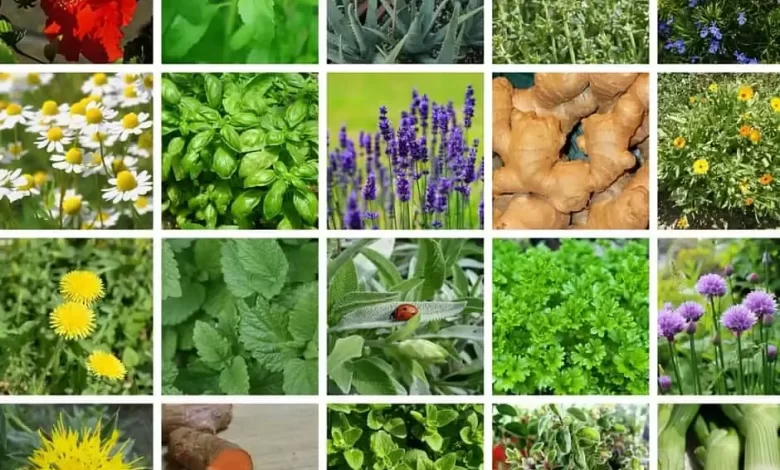
Today we will see some useful plants for the garden. They are very different species but all of them are very interesting beneficial plants if what you want is to cultivate an ecological and sustainable garden.

One of the foundations of organic farming is the design of diverse farming systems made up of different species. It is important, therefore, to mix several of these useful plants in the garden and to cultivate them in association with the horticultural ones to take advantage of all their benefits.
Useful plants in the garden
Growing beneficial plants for the garden helps us increase biodiversity and we also take advantage of the properties of useful plants to avoid the use of chemical fertilizers or insecticides.
Beneficial plants for the garden like the ones we will see below will undoubtedly help us to improve the ecological and sustainable garden.
1. Basil
This plant attracts beneficial pollinators such as bees, enhances growth and enhances the flavor of vegetables that are close to it.
In addition, basil repels whiteflies on tomatoes and peppers, so it’s a good idea to put several plants at the end of rows of tomatoes and peppers or intercrop them with vegetables.

2. Legumes
Legumes such as beans, broad beans or peas are beneficial plants for the soil. These plants help improve the substrate and are highly recommended for poor or «exhausted» soils due to continuous cultivation or the presence of very demanding plants such as tomatoes, aubergines or other fruit vegetables.
Leguminous soil-enriching plants that fix nitrogen from the air into the soil and make the soil better. As we have seen in other Agrohuerto posts, Nitrogen is an essential nutrient for plant development, so the presence of legumes will help you have good soil.
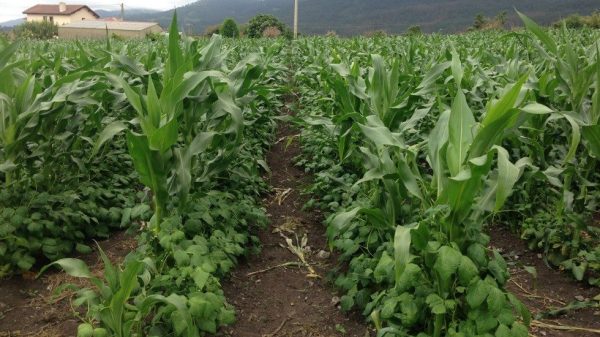
3. Liliaceae such as garlic and onion
Vegetables such as garlic, onion, chives or leeks are useful plants because, with their pungent smell, they protect the plants in the garden from common pests and diseases.
Garlic and onions combine well with nightshades (tomato, aubergine, pepper…), with leafy vegetables such as lettuce or spinach, and with brassicas such as cabbage or broccoli.
In addition, these liliaceae are the basis for making some natural preparations to fight against pests and against fungi and bacteria.
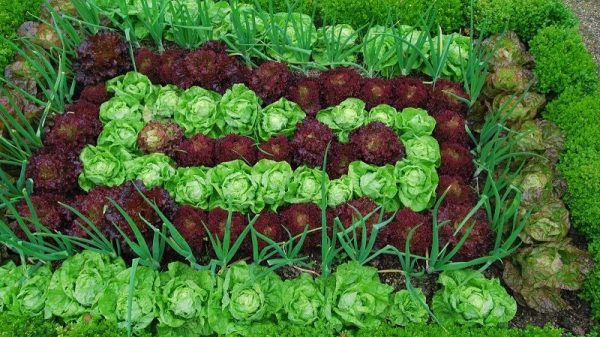
4. Plants to make green manures
Clovers, marigolds, lupins or chochos, alfalfa, yarrow… Plants like these are suitable for use as green manures that serve to improve the soil.
As we saw in the article on green manures for organic gardens, growing them is a good option to recover the soil, fertilize it and control weeds.

5. Beneficial flowers
Nasturtiums, tansy, borage, lavender, calendula… Planting flowers in the garden is highly recommended because, in addition to giving the space a more attractive and colorful appearance, they attract pollinators from the plants in the garden.
In addition, many of them, thanks to their penetrating smell, repel pests or attract beneficial insects that are their natural enemies. The orange flowers of calendula, for example, attract aphid predators.

6. Aromatic plants for the garden
Mint, spearmint, rosemary, lavender, thyme… The aromatic plants are useful in the kitchen and also attract bees, bumblebees and beneficial pollinating insects in the organic garden.
In addition to attracting pollinators, many aromatic plants repel insects that can become crop pests and are used to make medicinal preparations (More information in the article on aromatic plants for the garden).
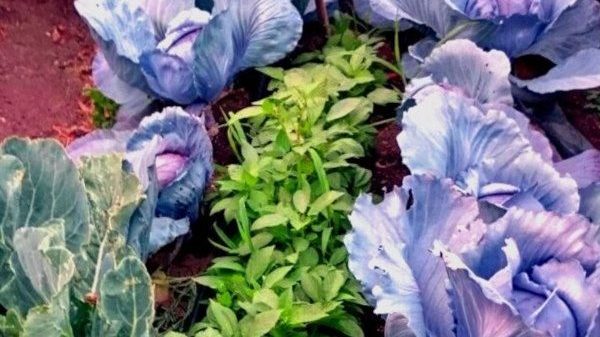
7. Wild fruit hedges
Growing wild fruits or berries is also possible in the orchard (in this case, they are no longer «wild» to become cultivated fruits).
Blackberries, blueberries, raspberries are some of the most cultivated wild fruits. Most are bushy plants that can be planted as hedges in the garden, which is very beneficial.
Well, these are just some of the useful plants in the garden, I hope you can tell us about some more!
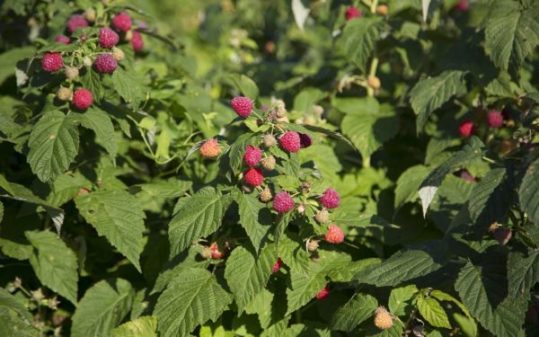
8. Radish
Radishes are not very demanding in terms of nutrients and very easy to grow, so it is one of the beginner crops because it does not require much care.
In addition, since it has a very short cycle (a harvest can be obtained in a month) it does not give time for pests or diseases to seriously affect it and it can be used as green manure to bury and fertilize the soil.
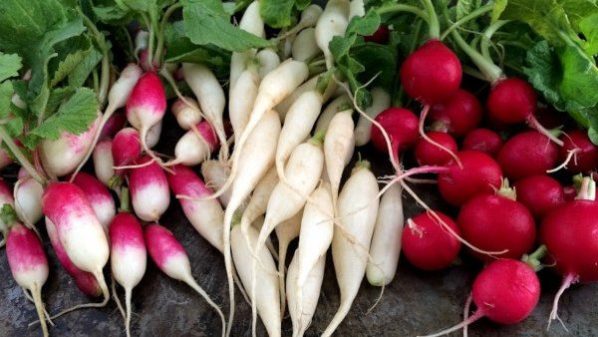
9. Tagetes
They are very useful for repelling whiteflies (common in tomato, cabbage, cucumber, squash…), or for reducing nematode populations in the soil and thus avoiding diseases caused by these microscopic worms.
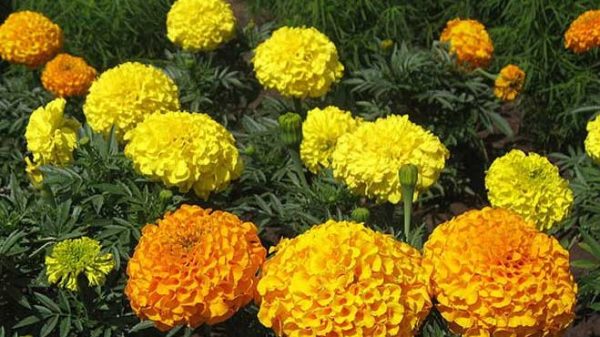
10. Ponytail
Horsetail is a herbaceous plant widely used in organic gardens to make home remedies to eliminate fungi. Horsetail preparations are also effective against pests such as aphids, red spiders and to repel snails and slugs.
As we saw in the report on the Didactic Garden at the School of Agricultural Engineers, horsetail plants can be macerated in large containers and make a natural preparation to prevent pests and diseases.

In addition, this plant has beneficial properties for health and is even used for aesthetic treatments.
IMPORTANT: If you want to plant horsetail in the garden, you must bear in mind that this plant is very invasive and that it can get out of control and appear everywhere. Grow it isolated and, if you can, protect it with a mesh or a transparent hood so that it does not reproduce throughout the garden.
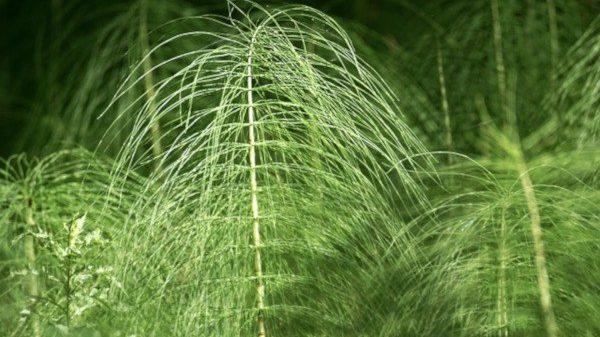
References
- Domingo, D. & López-Brea, M., 2003. Plants with antimicrobial action. Spanish Journal of Chemotherapy, Dec. 2003, vol. 16 (4), p. 385-393.
- Yong, A. & Leyva, A., 2010. Floristic biodiversity in agricultural systems. Tropical Crops, vol. 31, no. 4, p. 5-11. National Institute of Agricultural Sciences. Havana Cuba
- Altieri, MA et al., 2012. Green Agriculture: Agroecological Foundations for Designing Biodiverse, Resilient, and Productive Agricultural Systems. Agroecology Journal, Vol. 7 (1), p. 7-18.
- Guanche García, A., 2012. Green manures. Technical Information. AgroCabildo. Technical Service for Agriculture and Rural Development (Cabildo de Tenerife, Spain).
- Diputación de Valencia, 2014. Aromatic plants for urban gardens: cultivation and properties. Department of the Environment of the Diputación de Valencia (Spain)

![Photo of Vriesea: [Characteristics, Cultivation, Care and Disadvantages]](https://www.complete-gardening.com/wp-content/uploads/2022/08/vriesea-characteristics-cultivation-care-and-disadvantages-390x220.jpg)
![Photo of Aconite: [Cultivation, Irrigation, Care, Pests and Diseases]](https://www.complete-gardening.com/wp-content/uploads/2021/06/aconito_1618355790-390x220.jpg)
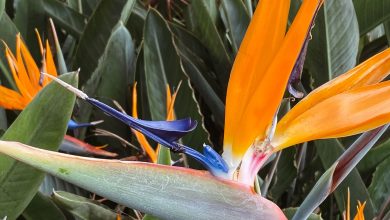
![Photo of Tamarind Tree: [Cultivation, Irrigation, Associations, Pests and Diseases]](https://www.complete-gardening.com/wp-content/uploads/2022/08/tamarind-tree-cultivation-irrigation-associations-pests-and-diseases-270x220.jpg)